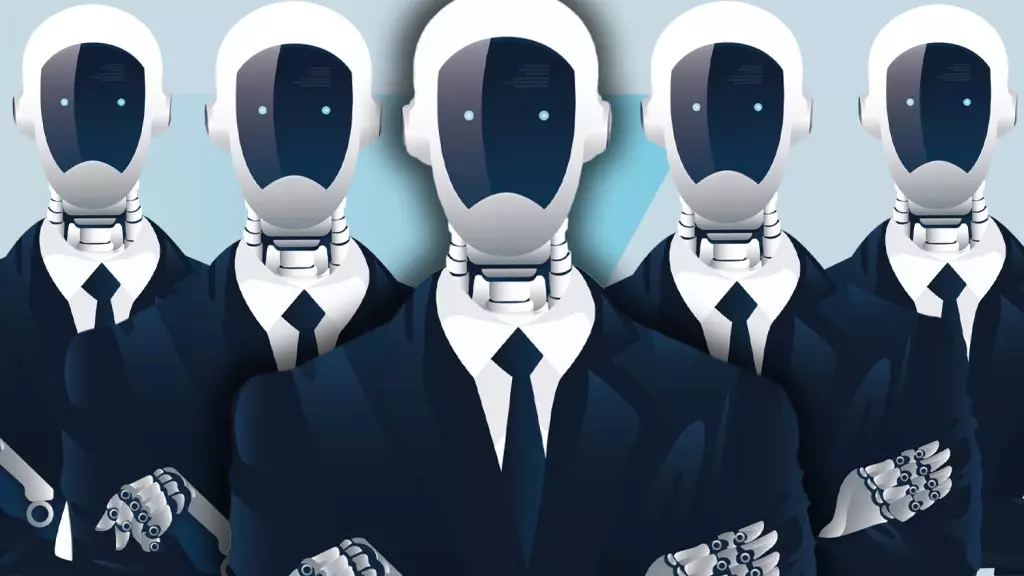In the contemporary landscape of the entertainment industry, the advent of artificial intelligence (AI) has instigated profound challenges for performers and their rights. The UK’s actors union, Equity, has taken a decidedly outspoken stance against what it perceives as the infringement of its members’ rights, particularly in the realm of AI training and development. As AI technology continues to advance, it raises pressing questions about the ethical use of creative content, compelling Equity to issue a stern warning to major media players and content creators, including the BBC, Disney, and ITV. The union’s delineation of expectations signifies a pivotal moment in the ongoing discourse about the intersection of technology and artistry.
Equity’s open letter is not merely a reaction to current trends; it serves as a clarion call for accountability within the industry. Highlighting what Liam Budd, Equity’s Recorded Media Industrial Official, characterizes as an “industrial scale theft” of actor data, the union is positioning itself as a defender of intellectual property rights amidst a rapidly evolving technological landscape. The crux of the matter lies in AI developers’ insatiable need for access to rights-protected content, which they utilize to train AI models—often without the informed consent of those whose performances and likenesses are at stake.
By asserting that “where performers’ rights are breached, Equity will robustly defend members,” the union communicates a readiness to escalate disputes to legal channels if necessary. This declaration is significant; it sets the stage for potential court battles that could redefine existing frameworks surrounding copyright and consent regarding performances used in AI systems. Amid increasing instances of unregulated content exploitation, Equity’s demand for respect and recognition of performer rights is not only timely; it reflects a broader call for ethical practices in an industry that has historically underappreciated the contributions of its artists.
As the demand for AI-generated content surges, so too does the urgency for an informed and collaborative approach between Equity and content creators. The union is actively seeking to engage in discussions that encompass not just the major players like broadcasters and streaming platforms but also independent creators and video game developers. The landscape of creative content distribution is evolving, and Equity’s push for dialogue reflects a forward-thinking approach to negotiate the complexities introduced by AI technologies.
Crucially, the letter emphasizes the need for updated frameworks that are reflective of contemporary practices under both the Copyright, Designs and Patent Act 1988 and the UK General Data Protection Regulation. The UK government’s AI Opportunities Action Plan, which aspires to create a copyright-cleared British media asset training dataset, aligns with Equity’s vision of a more equitable industry model. Such initiatives should pave the way for increased awareness and adherence to ethical standards that prioritize informed consent and transparency, acknowledging the significant role of performers in content creation.
Equity’s efforts to incorporate AI rights into ongoing negotiations with Pact reveal a determined stance that aims to reshape traditional paradigms affecting performers. As discussions drag into 2025 without resolution, the stakes are high. The union’s engagement with SAG-AFTRA’s recent contracts in the U.S. serves as a model, but their tailored approach considers the nuances in the UK context, addressing the implications of generative AI for various types of actors, including dubbing and supporting artists.
The significance of Equity’s campaign cannot be overstated; it is a crucial step in ensuring that the rights of performers are safeguarded in a tech-centric future. By advocating for their members’ rights and seeking transparent practices, the union is not just defending the interests of its artists—it’s championing a model where creativity and technology can coexist without compromising the integrity and value of artistic contributions.
The ongoing dialogue about AI’s place within the entertainment sector underscores a transformative period. As Equity passionately asserts its position against rights violations in AI training, it lays the groundwork for illuminating broader industry-wide changes. Compelled by a sense of urgency, the union’s proclamation encourages an industry-wide examination of ethical practices, ensuring that performers receive the recognition and protection they deserve in navigating an increasingly complex technological landscape. Balancing innovation with respect for artistic integrity is not just essential; it is a prerequisite for a sustainable future where creativity thrives alongside technology.


Leave a Reply